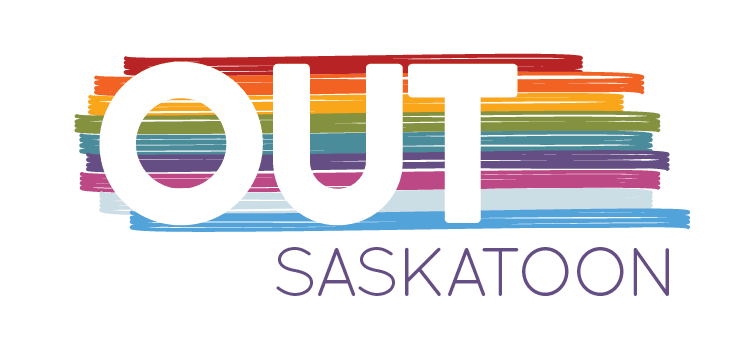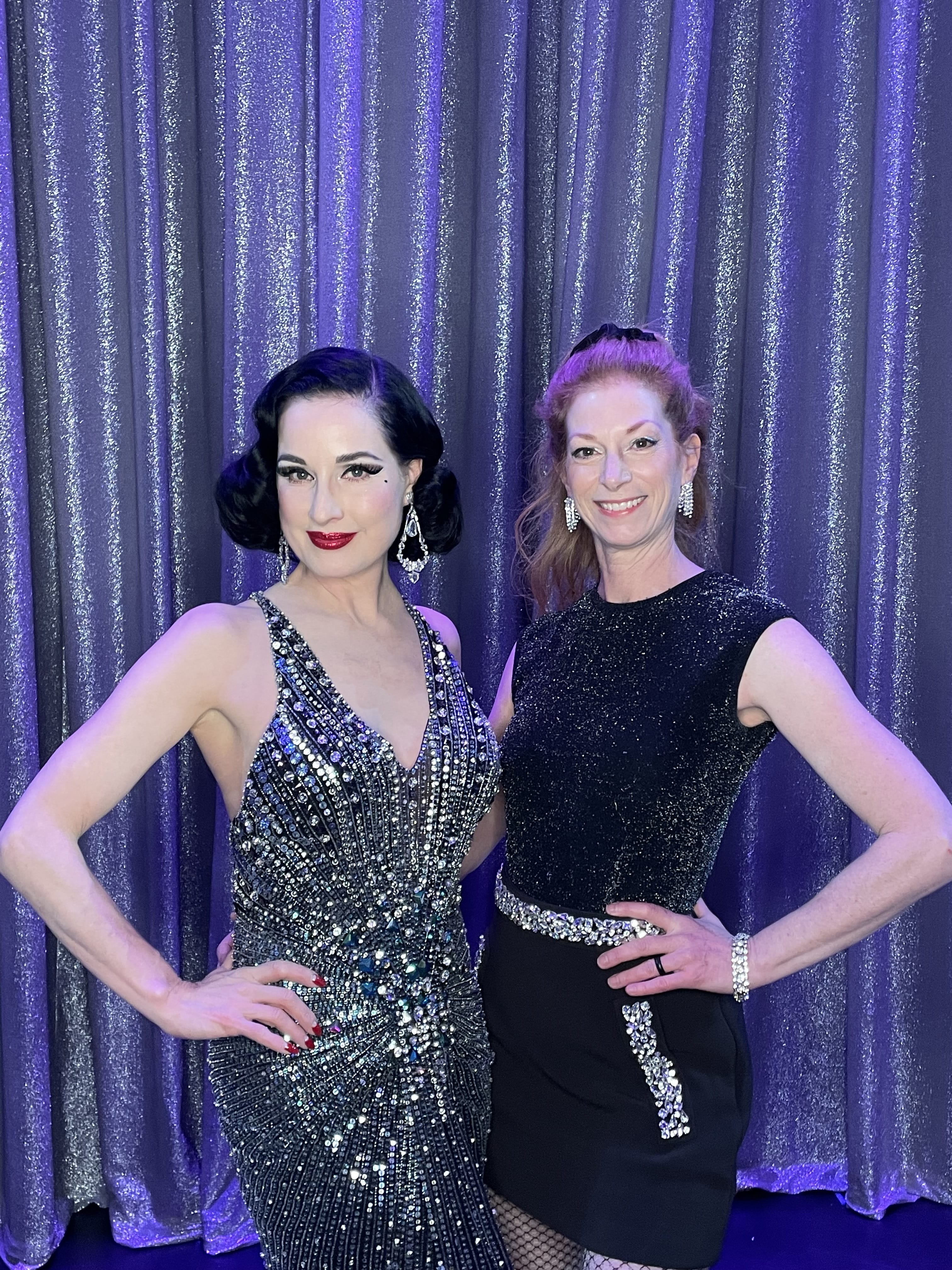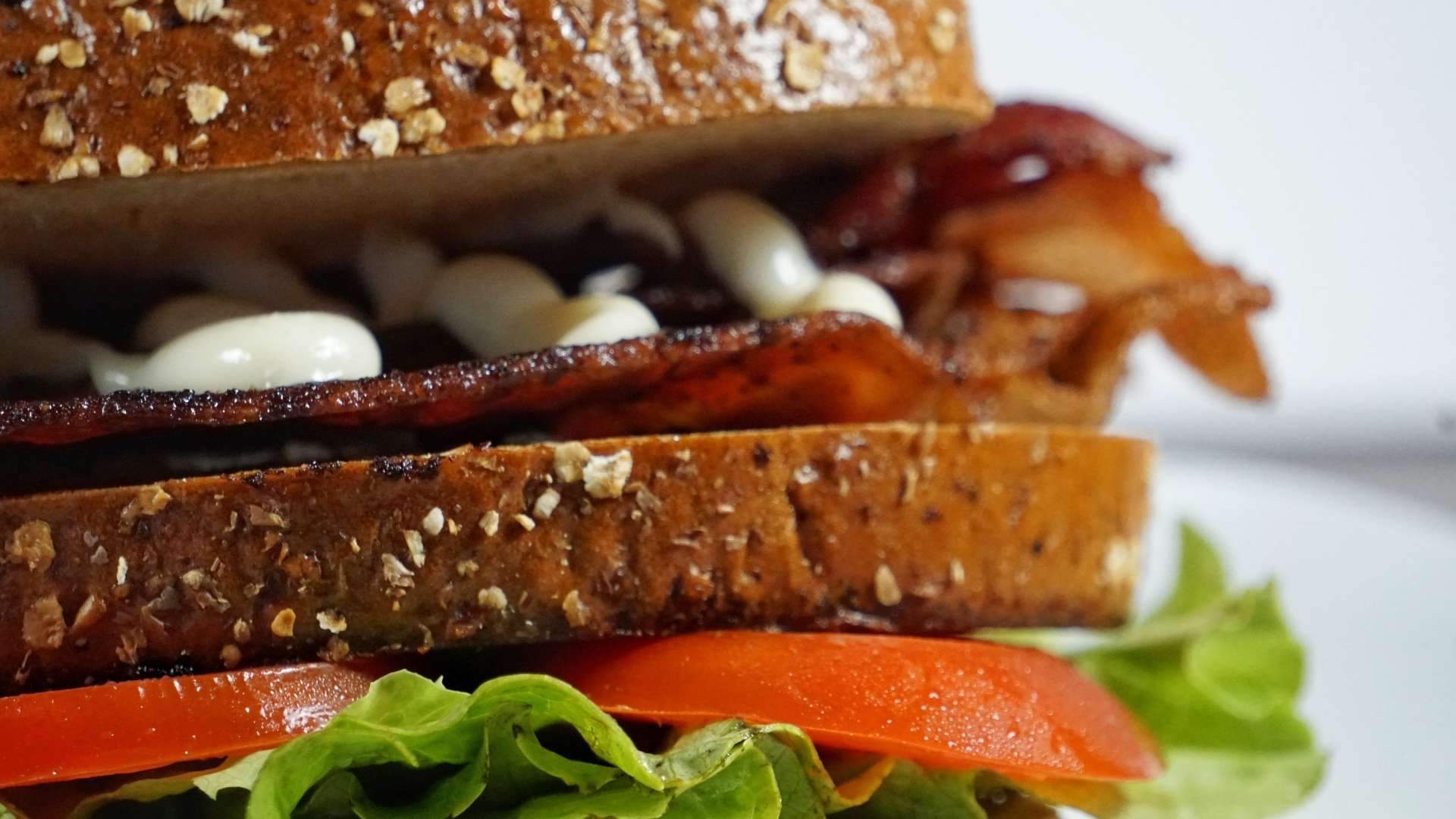A Conversation with OUTSaskatoon

At the beginning of the month we announced a new program that allowed us to take the next step in giving back to our amazing city. At the end of each month we will be donating $1 from each sugar cookie we sell to a local organization. For June, we partnered with OUTSaskatoon, Canada’s second largest queer organization. They provide an abundance of support for the 2SLGBTQ community through education, counselling and plenty of other programs. I recently spoke with Wendy Li, one of the coordinators at OUTSaskatoon, to learn more about the organization and see what changes were coming their way.
--
Gabe: Hi Wendy, thanks for taking the time to meet with me.
Wendy: No problem, I’m glad we could connect.
Gabe: I guess we can just start with a broad question, and that is what is OUTSaskatoon. I'm familiar personally with the organization and I know that there are a lot of people that are. And I can get the mission statement and all that from the website, but in your own words what is the organization and what are you trying to provide?
Wendy: What a loaded question.
Gabe: I like to bring the heat right off the bat.
Wendy: We provide education, housing, support services, and counselling. We have over a dozen social and support groups for all ages and different identities that have transitioned to be online due to COVID. We provide free counselling for folks who are part of the 2SLGBTQ community and because of COVID, we really had to shift what that looks like. Typically, it would be in-person counselling, and then everything had to shift online due to the pandemic. The positive side is we were able to hire another counsellor who does strictly remote counselling. Having things in-person is always the preferred option but the reality is some folks can't travel or make it to the city to have the face-to-face meetings. By being able to provide it online or over the phone, has made it very accessible for people.
Gabe: Well that's awesome. One of my questions was going to be what was the impact of COVID on you? It’s obviously not been a super positive year, but if you're able to expand your reach by transitioning a little bit online that’s a pretty big silver lining to take away from that.
Wendy: Yeah, and for myself, I'm one of the educators and pre-COVID I would educate in person at schools. But everything had to shift online. And at first, it was a challenge. Like many others, we didn't know how to use Zoom or any of the other digital platforms. I have noticed since switching to online workshops, students feel more comfortable asking questions about gender identity, sexual orientation and how to access support because it's all anonymous. That has made it very accessible for some folks because when I'm presenting in person, no one wants to ask a question about identity because they don't want to potentially out themselves. COVID has made us change our services and how we provide for our community, but there have also been some benefits. During Pride, we would host "Eat and Learns" where folks would come into our space and be a part of a workshop but now we are doing a ‘Learn From Home’ series and we can just see how many people attend from all around the world, which is really amazing.
Gabe: Oh wow that’s cool!
Wendy: Yeah, w
We've had folks from all across the country and some parts of the States as well. I don't know if it's someone messing with us with their computer settings, but there are people from all around the world attending our workshops which is really neat to see: just that it's so accessible for people to attend. And we also provide housing. We also have Pride Home, which is Canada's first long term housing for 2SLGBTQ youth. We house up to six youths between the ages of 16 to 21, and when they're living in our home, it's not like a free for all, we make sure that they are, you know, going to their appointments, going to school, doing whatever they need to do to transition back to independent living. That's ideally the goal. And then also because of COVID, we used to have a drop in center for people to come in, hang out, use the internet, or use computers, access the internet, watch TV, but we've had to shut that down. And now we provide a hub service. We help individuals with housing, system navigation, we provide lunches, and because it's so hot we're providing water. In the winter, we provided clothing for folks. The community has been so awesome. Whenever we do a call out for donations they always come through. It's amazing.
Gabe: That's so good to hear!
Wendy: I feel like we do a lot more. I'm sure I'm missing something.
Gabe: I mean even just that is plenty already, and is amazing work.
Wendy: We also provide programming online as well. We have over a dozen social and support groups for all identities and ages. When COVID first hit, everything transitioned online and for some groups, it was really challenging. But we have found that there are some of our groups that really skyrocketed in numbers because there are people who are able to attend from all across the province, who couldn't just show up on a Wednesday night to attend programming. Now they are able to hop on their computer and join the zoom call. Some groups have grown significantly, which is really great. And there's the downside of people who like to go in person. But again we can always do a hybrid model, like some weeks in person when we're online. And that's something that we're just trying to figure out right now. What's best for our community? What do they want?
Gabe: For sure. And then I guess this is still related to COVID a little bit. I know everyone's mental health kind of took a beating in the last year. And I guess it was also a positive in a way because it brought to light, a lot of awareness or just people talking about mental health, which is good to see that going in the right direction to be more open and not such a taboo subject to talk about. But did you notice that with the counselling and stuff like that if it was less in person? And did you notice something along those lines to where there were more people reaching out about mental health and their struggles like that during the last year or so?
Wendy: I am not on the counselling team so I can’t speak to any particulars, but I can say that our counsellor’s schedules are fully assigned for that. And I guess that, again, having our counselling services be a hybrid of online or in person, it is a lot more accessible for folks who maybe live in small towns in Saskatchewan who can't drive to Saskatoon for a counselling appointment. That has really, you know, just shown that it's necessary to have remote counsellors. And I don't know if that's something that we've been like, fighting for, but this is the evidence, right? People are accessing our services. They need us.
Gabe: Yeah, and like I said it's such a big negative for everyone, like around the whole world with COVID. And it's good to see that, obviously, I'm sure it was a challenge to adapt for a little bit, and I'm sure it still is like it is for a lot of the businesses and every organization, but it's good to see all these positives coming up and like you said, expanding your reach and being more accessible and, and to have that growth during a time where there was not a lot of growth for a lot of things is pretty special, I think. So I just have a couple more questions here. Just broad and general questions, because lt’s hard to ask about something I know about and feel comfortable with. But I guess what do you think you would say is OUTSaskatoon’s biggest struggle or challenge right now or has been in the past? Or something that you've noticed, or that might be a challenge going forward?
Wendy: Biggest struggle? I don't really know what our biggest struggle is right now.
Gabe: Well that's probably a good sign, then!
Wendy: I'm sure there's something that we're struggling with and I'm just not seeing it at the moment. We have lots of support from our community members. But at the same time we also still have the other effect of not having very supportive folks in our communities that are being very vocal about it. And I think that was very apparent last week at the painting of the sidewalk.
Gabe: Yeah, if you think of something for sure let me know. I guess I'll phrase it this way: We're already halfway through the year now, but what's the focus of the organization going into the end of the year? Like, is there a specific focus of the organization? Or is it more of the same of just being able to provide resources and education for the people that need it? Or is there something you're trying to do now?
Wendy: I think something that we're doing, and maybe we're being a lot more transparent, is just listening to what the community wants from us, because they’re the ones that hold us accountable. Because it's easy to say, Oh, yeah, we've done this the same the last couple years, doesn't mean it still works, right? We are putting more emphasis and listening to what our members want from us and what they need in terms of support or education. And we're always willing to listen. If we make a mistake, we want to hear people's feedback, and we want to do better. People always have this idea that we're professionals. And I’m like no, I'm still learning as well as with everyone else. So we're willing to take feedback and try to improve ourselves as well because we're not perfect. I know people maybe see us that way, but we are always listening and reflecting.
Gabe: And that's probably one of the most important things: no one's perfect. As much as someone might seem like they have everything together or seem like they have perfected living life. I'd like to find that one person that is perfect, because it'd be good to learn from them.
Wendy: Yeah, me too! Send them my way!
Gabe: I’ll keep my eye out and I’ll let you know. So I just have one more question: what are three things, or if you have a few things, what are the main things that you'd like people to know or to be aware of or to keep in mind?
Wendy: Only three?
Gabe: If you have a list I'm fine with the list!
Wendy: Yeah, okay. I think the biggest thing for us right now, like any queer organization, as we get into June we get so many people reaching out for education and like wanting learn from home workshops, or whatever it may be. And that is a great thing, but it's really important to be mindful that pride isn't just in June, but it's the other 11 months of the year, that the learning doesn't stop when June is over. Let's be mindful of that. People can always learn new things all the time. Like I provide education for young people, and then also older adults as well. So the learning doesn't stop when you're done with school. I think also, for pride, being mindful of where you put your money. And I'm sure you've seen lots of other businesses and organizations put a rainbow logo and then they think that's allyship. But I think it's important to know that there's more to it than that. And I’d also say if people work in businesses or customer service to find ways to be inclusive of their colleagues and the people that they work with. There's also resources online for folks to just scroll through. And that's like using gender neutral language or asking people what name and pronouns they want to go by, just simple little things like that can go a really long way in terms of creating inclusive spaces. People might think it's a hard thing to do, but it's not, you know, you've just got to do some research on your own. And we also provide training, and we're more than happy to do that. But I think people forget that they can also do a little digging on their own. Going forward I do think it's important for schools to have gender neutral washrooms. Not just schools, but for all public spaces to have a gender neutral washroom, because sometimes for trans people and non binary folks that can be a very dangerous and harmful time in trying to find a bathroom where they feel safe.
Gabe: Yeah, it's the same thing and I don't like saying it because it sounds sad to say, but there's just so many communities and people, especially in the last year it’s been highlighted, there's just so many people that that need help and whether it's like the 2SLGBTQ community now,or the Indigenous community, there's so many that need support and help at all times. And it's not just when one unfortunate or tragic event happens, where there's always a big explosion of awareness, especially on social media, and communication about it, but it's like that needs to be year round and at all times for everybody because that's the only way to make make the world a more inclusive and connected and happy place. To be always learning, like you said, and doing that at all times. And I think the thing is, like you said, it seems like it might be a lot of work to do that, but it really isn't. The internet and organizations Like OUTSaskatoon make it very easy to find what you need to read up on and do the research for yourself.
Wendy: Just echoing what I said before is support year-round. Because it's important. Always. Something I hear time and time again is oh I did training, I'm an ally,- but we always emphasize that it's all about action, it's really important that you put your allyship into action. And again, that's very different for everybody. We're not expecting everybody to be a superhero. For some people, it's speaking up to their family members when they make homophobic and transphobic comments, and for some it's reading a book and learning more about the community on their own time. It's just learning and unlearning societal norms that we've been taught for a very long time. And just understand that queer people, 2SLGBTQ people exist and we have existed for a very long time.
Gabe: Yeah, I agree completely. Well those are really the main questions I had. Is there anything else you wanted to bring up or anything else we haven't really talked about or mentioned?
Wendy: I think a fun fact is that OUTSaskatoon is Canada's second-largest queer organization. We've been around since 1991, and have gone through a few different name changes in the past. We began as Gay & Lesbian Health Services (GLHS), and then we changed the name in 2005 to The Avenue Community Centre for Gender and Sexual Diversity and in 2015, we changed our name to OUTSaskatoon.
Gabe: Yeah, I've been aware of you guys for a while since I moved up here. But when I was reading through the website, I was like, wow, 1991. That's older than I am. That's very impressive and very cool. It’s really cool when you actually think about how long that's been.
Wendy: Yeah, we've also been making changes like moving buildings. Because we used to be on the top floor of that Habitat For Humanity center, prior we were in the Avenue building. And then our staff team got too big and we moved half a block to 213 Avenue C S, which is right across the street from the Food bank and this is the first time we are street front. We don't have to hide who we are.
Gabe: That's just like a beautiful metaphor too for the community as well for how the world's transitioning now to be more open and mindful? And then did you say that Pride Home was like the first housing of its kind?
Wendy: Yeah, so Pride Home is Canada's first long term housing for queer youth. Specifically for queer youth. I'm sure there's other youth housing, but ours is specifically for the queer kids. It’s nice that we have his but also the fact that we do have one just kind of speaks how important it is to love your kid for who they are.
Gabe: For sure. That can be the most stressful and challenging part. Did you have anything else for me?
Wendy: I don’t think so, I’m sure I will as soon as we hang up.
Gabe: Well you can always send it my way.
Wendy: Sounds good, it was great talking to you, take care.
Gabe: You too, Wendy, have a great day.
--
If you want to learn more about OUTSaskatoon, please feel free to head to their website.
Below is a list of resources for education and awareness:
The 101 Pack:
The Identities Pack:
The Relationships Pack:
PrEP 101:
There’s still a few days left to order rainbow sugar cookies, with $1 from each cookie going to OUTSaskatoon. Add some to your order here!
If you’re able to, you can also make a donation to OUTSaskatoon directly here!
As Wendy stated, the hope is that we can all continue to learn, reflect and grow in order to be allies for the 2SLGBTQ community, but we can apply that to every single person as we continue to make the world a more accepting and loving place.



